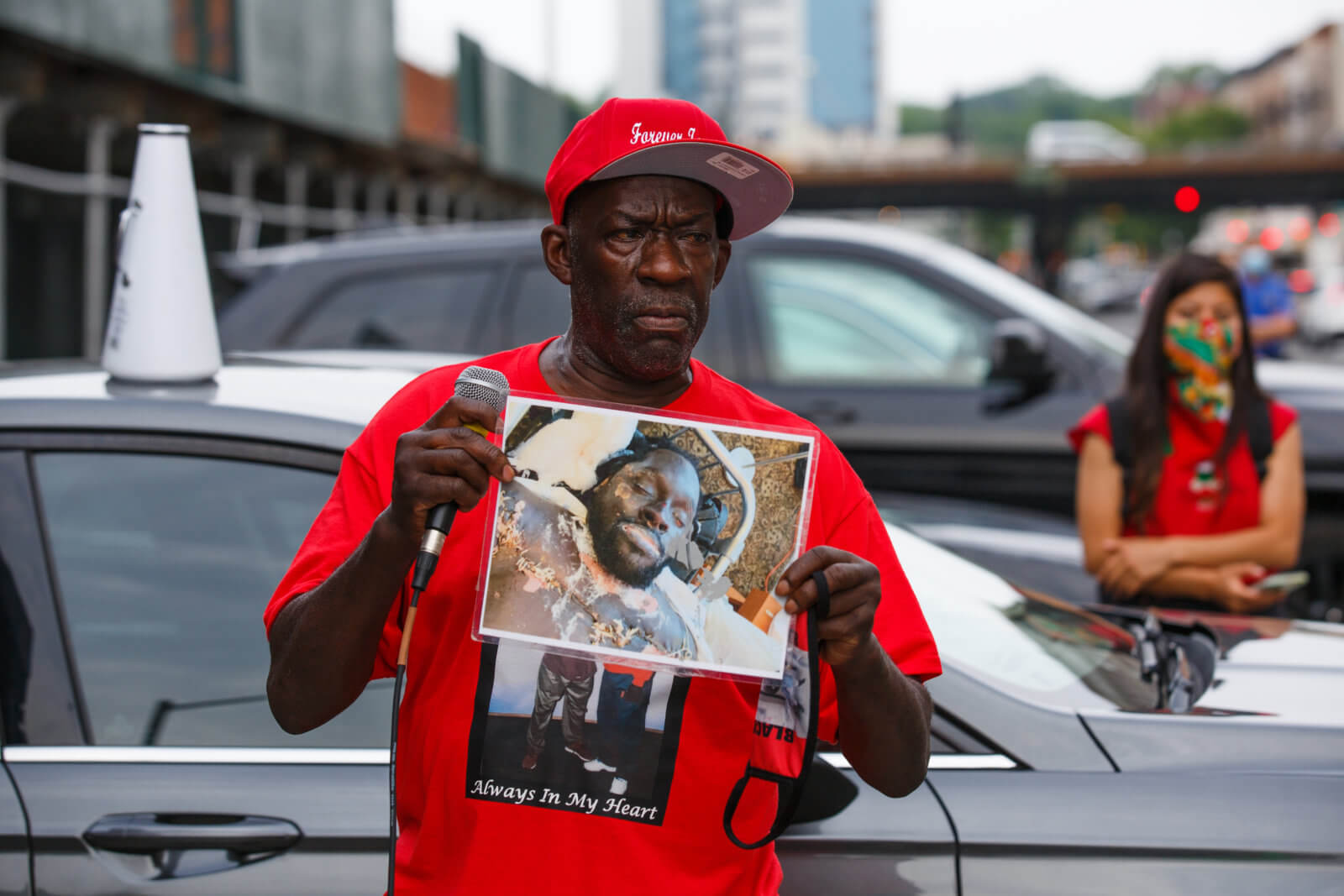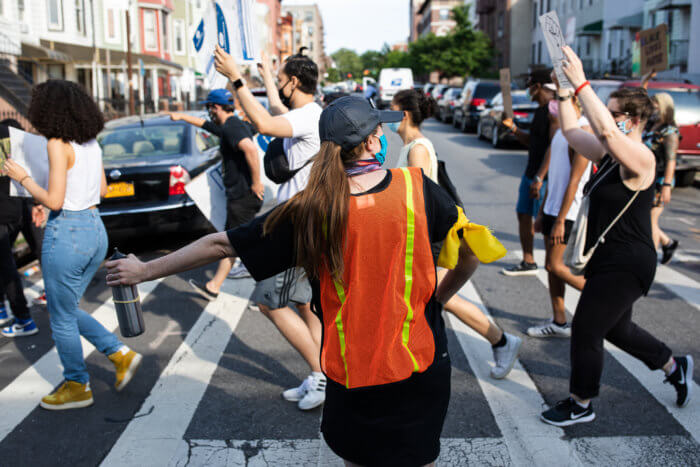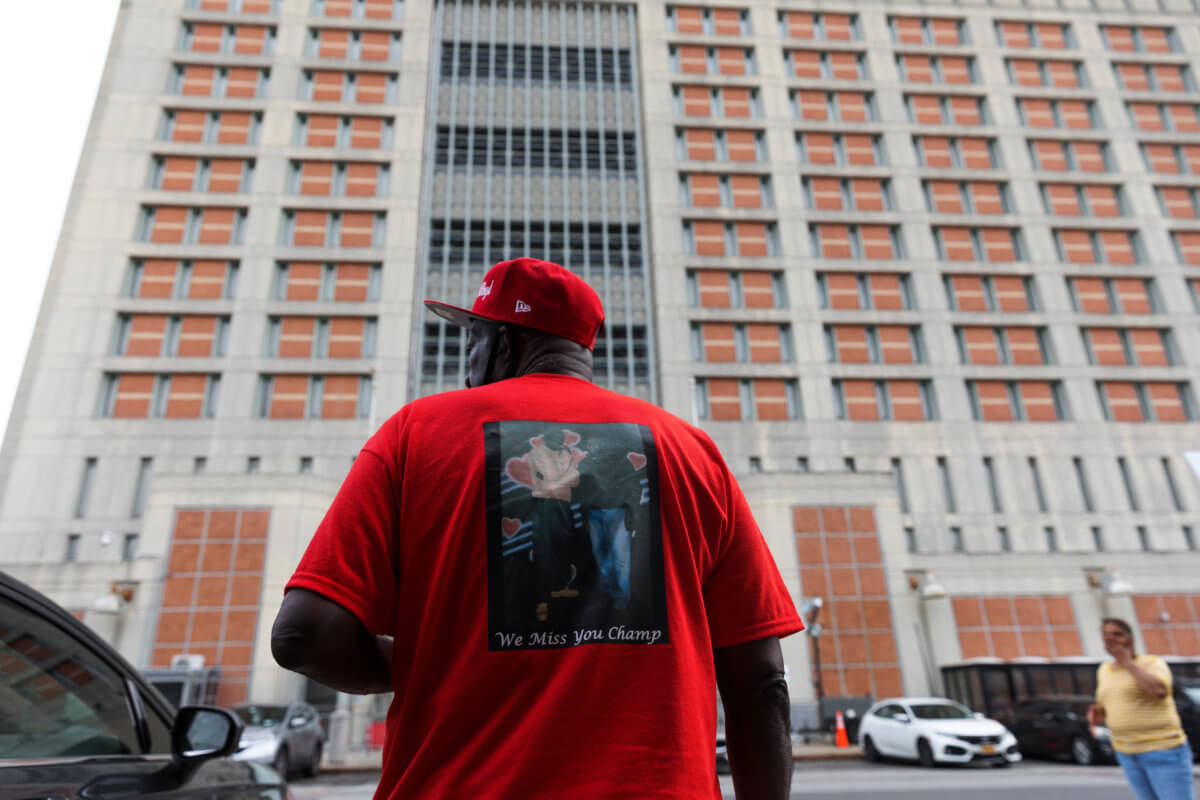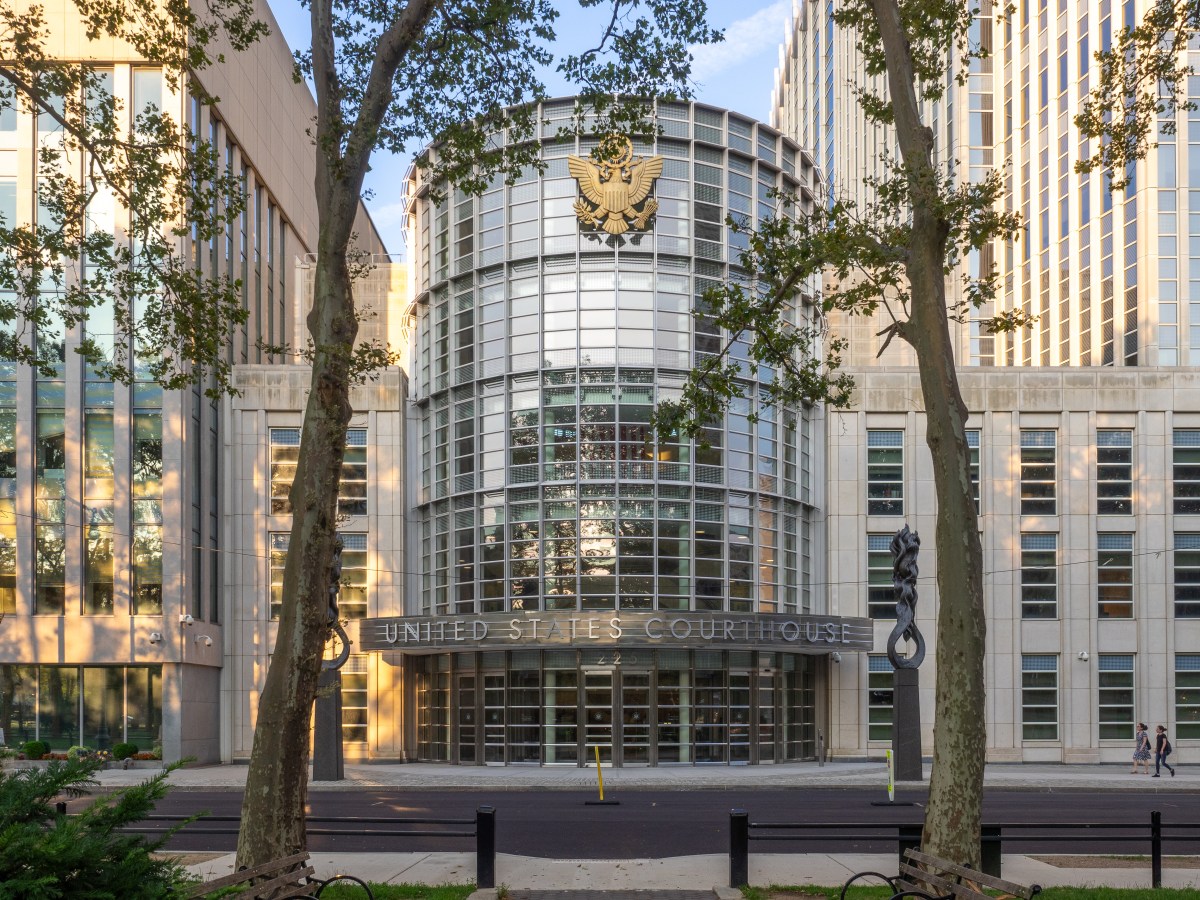The family of Jamel Floyd, who grew up and was laid to rest in Hempstead after his death in 2020, sued the Metropolitan Detention Center and 30 MDC correctional officers in federal court on Wednesday on five counts, including wrongful death and negligence in the face of a fatal medical episode. Brooklyn Paper first reported that Floyd’s family had vowed to sue earlier this month, on the one-year anniversary of his death.
The case, filed Wednesday morning in Brooklyn federal district court, alleges severe mistreatment of Floyd by guards at the notorious lockup, both before and during the incident that led to this death.
“Mr. Floyd’s life was cut abruptly short by correctional officers who subjected Mr. Floyd to excessive force and then stood by while he slowly died,” the lawsuit reads.
Floyd had been transferred to the federal prison in Sunset Park from state prison at Sing Sing in October 2019. He was eligible for a parole hearing just three days after his death, and would have been eligible for parole in October 2020.
The family claims that Floyd’s death was caused by a cardiac arrest brought about by massive amounts of mace sprayed into his cell; the city’s Medical Examiner disagreed, contending that Floyd had had a “synthetic cannabinoid” in his system at the time of his death that triggered the cardiac arrest.

The family, represented by name in the case by Floyd’s mother Donna Mays, claims that approximately 28 guards were present at Floyd’s death, and that none did anything to save his life until it was far too late. The suit claims that in the early hours of June 3, 2020, Floyd began crying for help and banging on the door of his cell to no answer. Floyd was spoken to by guards and by a prison psychologist, all of whom did not address Floyd’s health.
Eventually, Floyd ripped an unclear “piece of hardware” from his sink and broke his cell door’s window. Approximately 28 guards (the family does not have a firm number) eventually showed up, some with riot shields, but Floyd cried out that he was in need of medical attention and that staff were “not listening.”
The family, who told Brooklyn Paper last month that they had seen video of the incident, alleges that guards did not attempt to verbally calm Floyd down, and instead sprayed “multiple canisters” of pepper spray into the cell, so much that other inmates put towels under their cell doors or T-shirts over their face. Floyd began “coughing, gagging, and choking” and eventually collapsed, the result, per the family, of being excessively maced.
Floyd was “soaked in pepper spray” and “incapacitated,” but guards “ignor[ed] Mr. Floyd’s clear medical emergency,” going into his cell, tackling him and yelling at him to stop resisting. Guards did not administer CPR, which the suit alleges could have saved his life.
Guards allegedly did not call for medical attention even after discovering that Floyd had no pulse, instead placing him in a “restraint chair” despite his being unresponsive. One inmate who witnessed the scene said “he looks like he’s dead, he needs medical.”
A Federal Bureau of Prisons paramedic was only allowed to examine Floyd after he was restrained in the chair, unconscious and unresponsive. By the time staff attempted resuscitation, it was “too little and far too late.” Floyd was eventually taken to NYU Langone-Brooklyn in Sunset Park, where he was pronounced dead.
“It’s really clear to us speaking with witnesses and seeing an initial bit of video of the incident that there were dozens of officers involved,” family attorney Nick Bourland, from the law firm Emery Celli Brinckerhoff Abady Ward & Maazel, told Brooklyn Paper. “This happened in the open in front of everyone. And they knew he didn’t have a pulse not long after the incident, and they didn’t do anything about it. It’s a complete breakdown of the system there at MDC.”
The suit alleges that BOP staff used pepper spray in violation of bureau regulations, which stipulate that it be used only to protect staff or other inmates in cases of danger, and that pepper spray be used only in “one, two second burst[s],” not the nearly five second sprays that were used in Floyd’s cell. The guards also used excessive force well beyond those prescribed in federal regulations, the family says, and knowingly disregarded both Floyd’s mental health episode, and the risks to his physical health brought about by their actions, causing his death.
The family currently doesn’t know the names of any of the guards involved, and so they are being sued as John and Jane Does; they hope to find out the names in discovery for the case.
Floyd was in solitary confinement at the time of his death, owing to COVID protocols at the time, Bourland told Brooklyn Paper. Floyd was treated at Kingsbrook Jewish Medical Center on May 30, 2020 for injuries sustained during an alleged assault by two guards, whom the family is also suing, the night before. He was placed in solitary upon his return, as regulations required inmates to be placed in isolation after being at a hospital at the time, when COVID was raging through the city.
The suit further alleges that in April 2020, Floyd was abruptly taken off his medication regimen to treat high blood pressure, asthma, schizophrenia, and bipolar disorder. Bourland said he and the family were unaware of why. His meds were restored later that month.
Bourland said that guards, when planning on using force, are supposed to bring cameras and film the exchange, but that not one of the dozens of guards appears to have used one. “Dozens of officers responding and not a single one brought a camera begs the question of whether it was intentional or not,” he said.

MDC has had a troubled history, especially in the past few years. Inmates were left without heat for an entire week during one of the coldest spells in memory in 2019; the Justice Department’s Inspector General found that prison staff had failed to address temperature issues prior to the cold stretch, that the facility did not adequately address the heating outage in real time, and that the BOP hadn’t been transparent with inmates or with the public.
During the COVID-19 pandemic, inmates alleged harrowing conditions at the hands of guards, like being locked all day in their cells, and not being given adequate personal protective equipment or space to socially distance. Another inmate, Kenneth Houck, died just two weeks before Floyd in what the Medical Examiner ruled a suicide.
Just this Wednesday, a former investigator for the Drug Enforcement Administration was found dead at the prison, one day after being convicted of child porn charges and being put in solitary confinement.
“The corrections officers at MDC, like COs at other correctional institutions that suffer from mismanagement, lack of oversight, lack of transparency, just have free rein and are able to act with impunity,” Bourland alleged. “There is a culture of negligence and violence at this institution and this is just one example of it.”.
A spokesperson for MDC could not be reached for comment.
This story first appeared on BrooklynPaper.com.
Sign up for Long Island Press’ email newsletters here. Sign up for home delivery of Long Island Press here. Sign up for discounts by becoming a Long Island Press community partner here.





























